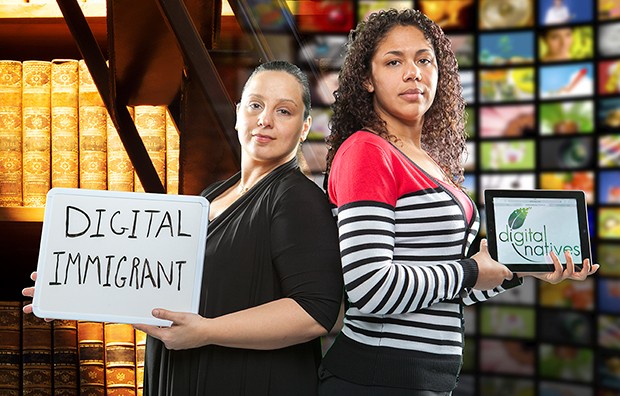Why the digital classroom needs to go ‘old school’
Ninety-eight years ago, the American philosopher John Dewey wrote: “If we teach today as we taught yesterday, we rob our children of tomorrow.” On the surface, this statement seems to hold true in our contemporary educational environment.
While digital technology transforms everything from reading formats to social habits, post-secondary educators are under pressure to adapt. In a world of wikis, blogs and Moodle, the traditional instructive lecture is as retro as a Neil Diamond 8-track tape.
But before university professors swear off the lectern and donate their tweed jackets to the Salvation Army, they may want to pay attention to new findings from Concordia’s Department of Education.
“It may seem counterintuitive, but today’s students see traditional lectures as extremely important elements of a good class,” says researcher and PhD candidate Tieja Thomas. “They see them as vital to their education.”
It is often thought that in the current paradigm, “digital natives” — a term used to describe children of the digital age — need to be engaged differently by their professors, many of whom are “digital immigrants” who adopted the new technologies later in life.
But as Thomas’s fellow doctoral candidate Jihan Rabah points out, this is not necessarily the case. “Yes, students like technology, and yes, they want it in the classroom — but they still want classical instruction.”
Thomas and Rabah recently contributed to an article entitled “From disconnected to connected: Insights into the Future of Distance Education and Web 2.0 Tools in Higher Education,” and co-edited the special issue of the International Journal of Technologies in Higher Education in which it appeared.
Based on research by Vivek Venkatesh, an associate professor in the Department of Education, it referred to a recent survey of 15,000 students from 12 Canadian universities. The results point to a need for educators to merge more traditional forms of pedagogy with the newer constructivist styles that encourage input from students and benefit from Web 2.0 technology.
“I think this survey is a cautionary tale,” Rabah says. “Professors need to stop and think about how they are going to use these technologies before integrating them into the classroom. Setting up something like a social network just for the sake of it can ultimately be counterproductive.”
Read “From disconnected to connected: Insights into the Future of Distance Education and Web 2.0 Tools in Higher Education” in the International Journal of Technologies in Higher Education.
About the graduate researchers
Tieja Thomas currently holds a Social Sciences and Humanities Research Council doctoral fellowship. She was awarded a Concordia University Conference and Exposition Award once in 2012 and twice in 2013, as well as Faculty of Arts and Science travel grants in 2012 and 2013. Thomas also won the 2012 Administrative Management Society John Crawford Award and a New Scholars’ Award from the Comparative and International Education Society in 2013.
Jihan Rabah is currently completing her third year as a doctoral student in Concordia’s Department of Education. She holds the David J. Azrieli Graduate Fellowship. Rabah was also last year's recipient of the Judy and Morris Fish Graduate Scholarship in Education. She has received two Conference and Exposition Awards from the School of Graduate Studies, and won the school’s Research Ethics Competition. She represented Concordia at the 3rd World Conference on Research Integrity in May 2013.
Thomas and Rabah found the editing of the International Journal of Technologies in Higher Education special issue to be a very rewarding experience. “This was an amazing behind-the-scenes look at the peer review process,” explains Thomas. “It also gave us the opportunity to gain editing experience in a well-respected journal in our field.”
